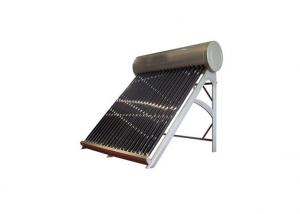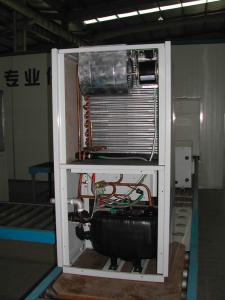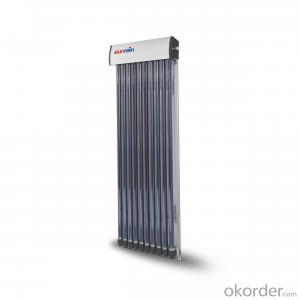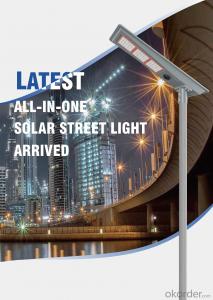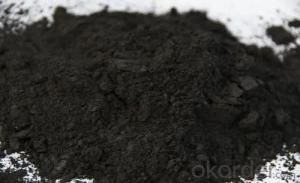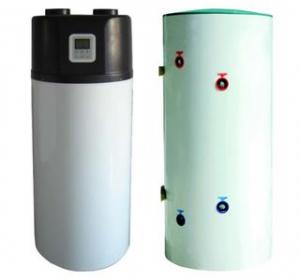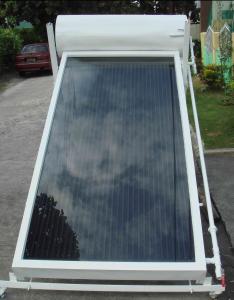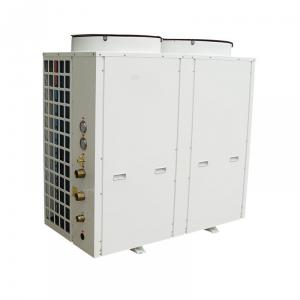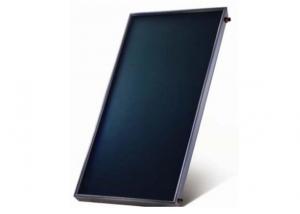Compact Solar Water Heater
- Loading Port:
- China Main Port
- Payment Terms:
- TT OR LC
- Min Order Qty:
- -
- Supply Capability:
- -
OKorder Service Pledge
Quality Product, Order Online Tracking, Timely Delivery
OKorder Financial Service
Credit Rating, Credit Services, Credit Purchasing
You Might Also Like
| Type | Evacuated Tube |
| Pressure | Unpressurized |
| Circulation Type | Other |
| Heating System | Thermosyphon (Passive) |
| Connection Type | Direct-Plug |
| Certification | CE, Solar Keymark, SABS |
| Model Number | TZ58/1800-10,15,20,24,30 |
| Recommend region | Asia, Africa, Latin America |
Key points
Inner tank: stainless steel SUS304-0.5mm
Vacuum tube: QB-AL-N/AL-47-1500/58-1800
Outer tank: painted steel-0.4mm/aluminum-zinc coated steel-0.45mm/stainless steel SUS304
Insulation: polyurethane
Frame: coated galvanized steel-1.5mm/stainless steel SUS430-1.5mm
- Q:Can a solar water heater be used in areas with limited access to water sources?
- No, a solar water heater requires access to a water source in order to function properly.
- Q:What is the difference between a flat plate and evacuated tube collector in a solar water heater?
- A flat plate collector and an evacuated tube collector are two different types of solar water heaters, each with its own advantages and disadvantages. A flat plate collector consists of a flat, rectangular box with a transparent cover, usually made of glass, and a dark-colored absorber plate inside. The plate absorbs the sunlight and transfers the heat to a fluid (usually water or a mixture of water and antifreeze) that circulates through the collector. The fluid then carries the heat to a storage tank or directly to the desired application. On the other hand, an evacuated tube collector consists of a series of parallel glass tubes, each containing a metal absorber tube. The air is removed from the space between the two tubes, creating a vacuum, which helps to minimize heat loss. The absorber tube absorbs the sunlight and transfers the heat to the fluid that flows through it. One of the main differences between the two collectors is their efficiency. Evacuated tube collectors are generally more efficient than flat plate collectors, especially in colder climates or during cloudy days. The vacuum insulation in evacuated tubes reduces heat loss, allowing them to collect more solar energy even in less favorable conditions. Another difference is their resistance to overheating. Flat plate collectors can sometimes overheat in hot climates or during summer months, which can reduce their efficiency and even damage the system. On the other hand, evacuated tube collectors have a higher tolerance for high temperatures, making them more suitable for areas with intense sunlight or during peak summer conditions. In terms of cost, flat plate collectors are usually less expensive than evacuated tube collectors. The manufacturing process of flat plate collectors is simpler and requires fewer materials. However, the higher efficiency and durability of evacuated tube collectors can offset their initial cost over time, as they tend to have a longer lifespan and lower maintenance requirements. Overall, the choice between a flat plate collector and an evacuated tube collector depends on various factors such as climate, budget, available space, and desired performance. It is important to evaluate these factors carefully to determine which type of solar water heater is the most suitable for a specific application or location.
- Q:Can a solar water heater be used in areas with limited access to sunlight?
- No, a solar water heater cannot be effectively used in areas with limited access to sunlight as it relies on solar radiation to heat the water.
- Q:Are solar water heaters eligible for any government incentives or tax credits?
- Yes, solar water heaters are eligible for various government incentives and tax credits. Many governments offer financial incentives to encourage the use of renewable energy, including solar water heaters. These incentives can vary depending on the country or region, but they often include tax credits, rebates, grants, or low-interest loans. It is recommended to check with local government agencies or consult a tax professional to determine the specific incentives available in your area.
- Q:How does the cost of a solar water heater compare to a traditional water heater?
- Compared to a traditional water heater, a solar water heater typically carries a higher price tag. Despite this initial expense, the long-term advantages and savings can outweigh the added cost. Solar water heaters utilize the sun's energy, a free and renewable resource, to warm water. Consequently, homeowners can substantially reduce their monthly utility bills by diminishing their reliance on pricey electricity or gas. Furthermore, solar water heaters boast a lengthier lifespan in comparison to traditional models, resulting in reduced maintenance and replacement expenses over time. Moreover, by installing a solar water heater, homeowners may qualify for various tax incentives or rebates, further mitigating the initial expenditure. In summary, although the upfront cost may be greater, the long-term savings and environmental benefits of a solar water heater make it an economically viable and sustainable choice.
- Q:Winter solar water heater easy to use
- Solar energy technology has been developed in China for more than 20 years, the technological breakthrough is changing rapidly, from our solar water heater users can see how big the market for solar energy. Now in addition to the traditional vacuum tube solar water heater, but also the emergence of a flat plate solar energy is more stable, the solar energy even when it rains can provide hot water, but the flat type solar water heater in our country use rate is not very extensive, so we have to vacuum tube solar water heater as an example, see the solar water heater technology to PK climate environment.Answer: solar water heater can be used in winter, my home is mainly installed in order to facilitate winter, water temperature and summer is not too bad.
- Q:How much money can be saved by using a solar water heater?
- The savings from using a solar water heater can vary due to factors like the system's initial cost, local energy rates, and hot water usage. On average, homeowners can save between 50% to 80% on their water heating expenses with a solar water heater. The installation cost of a solar water heater can range from a few thousand dollars to tens of thousands, depending on its size and type. Despite this upfront investment, the long-term savings can be substantial. Since solar energy is abundant and free, homeowners can lessen their dependence on conventional water heating methods that rely on electricity or natural gas, both of which come with recurring expenses. Furthermore, solar water heaters generally have a longer lifespan compared to traditional water heaters. This means that the savings can continue for many years. With proper maintenance, a solar water heater can provide hot water for 15 to 20 years or more, while conventional water heaters may need replacement every 8 to 12 years. Additionally, using a solar water heater can contribute to reducing greenhouse gas emissions. Solar energy is a clean and renewable source, helping to diminish the carbon footprint associated with traditional water heating methods that involve burning fossil fuels. In conclusion, the exact savings from using a solar water heater will depend on various factors. However, it is widely recognized that homeowners can save a significant amount on their water heating expenses, decrease their reliance on traditional energy sources, and contribute to a more sustainable environment by switching to solar.
- Q:Can a solar water heater be used in areas with limited access to solar rebates?
- Yes, a solar water heater can still be used effectively in areas with limited access to solar rebates. While rebates can certainly make the initial investment more affordable, the long-term savings and environmental benefits of using a solar water heater still make it a viable option. The system can significantly reduce energy bills and reliance on fossil fuels, even without rebates. Additionally, there may be other financial incentives available, such as tax credits or grants, that can help offset the costs for those in areas without solar rebates.
- Q:Solar water heater in the end do not use electricity
- Solar water heaters are in need of electricity, heating with solar energy in summer and heating in winter.
- Q:My home is sometimes not as high as the temperature as long as the sun is enough hot water heater, and sometimes it is very hot, but if the cloudy and the like will not be how hot, solar energy is used for light?
- 1, as long as the use of solar energy as long as the use of solar thermal and photovoltaic;2, is the so-called photothermal convert solar energy into heat, then heat transfer to the working fluid (water, air, or other material, working fluid of the solar water heater is in use, water) is mainly composed of a solar collector in the sunlight, the light energy is converted into heat energy.
1. Manufacturer Overview |
|
|---|---|
| Location | |
| Year Established | |
| Annual Output Value | |
| Main Markets | |
| Company Certifications | |
2. Manufacturer Certificates |
|
|---|---|
| a) Certification Name | |
| Range | |
| Reference | |
| Validity Period | |
3. Manufacturer Capability |
|
|---|---|
| a)Trade Capacity | |
| Nearest Port | |
| Export Percentage | |
| No.of Employees in Trade Department | |
| Language Spoken: | |
| b)Factory Information | |
| Factory Size: | |
| No. of Production Lines | |
| Contract Manufacturing | |
| Product Price Range | |
Send your message to us
Compact Solar Water Heater
- Loading Port:
- China Main Port
- Payment Terms:
- TT OR LC
- Min Order Qty:
- -
- Supply Capability:
- -
OKorder Service Pledge
Quality Product, Order Online Tracking, Timely Delivery
OKorder Financial Service
Credit Rating, Credit Services, Credit Purchasing
Similar products
New products
Hot products
Hot Searches
Related keywords


